Condensing vs Non Condensing Tankless Water Heaters: What are the Differences?
Are you in the market for a new tankless water heater? Before making your selection, it's important to know the benefits of condensing vs non-condensing options. Our article breaks down the differences between these two types of heaters, giving you the knowledge you need to choose the best option for your home. Don't make an uninformed decision - read on for our detailed comparison.

What is a tankless water heater and how does it work?
Discover the two types of water heaters: traditional and tankless. Traditional models store water in a tank that's always heated, while tankless designs heat water on demand. Say goodbye to the clutter of a bulky tank and save energy with a tankless heater's innovative heat exchanger. Plus, tankless heaters have a longer lifespan without the common corrosion and leakage problems like traditional models. Upgrade to a tankless heater for a space-saving and reliable solution for hot water.


What is a condensing tankless water heater?
Upgrade your home's water heating system with a condensing tankless water heater! Say goodbye to energy waste and high bills. This advanced appliance recycles wasted heat to quickly and efficiently heat your water, reducing your carbon footprint and saving you money. Make a smart investment in your home and the planet.
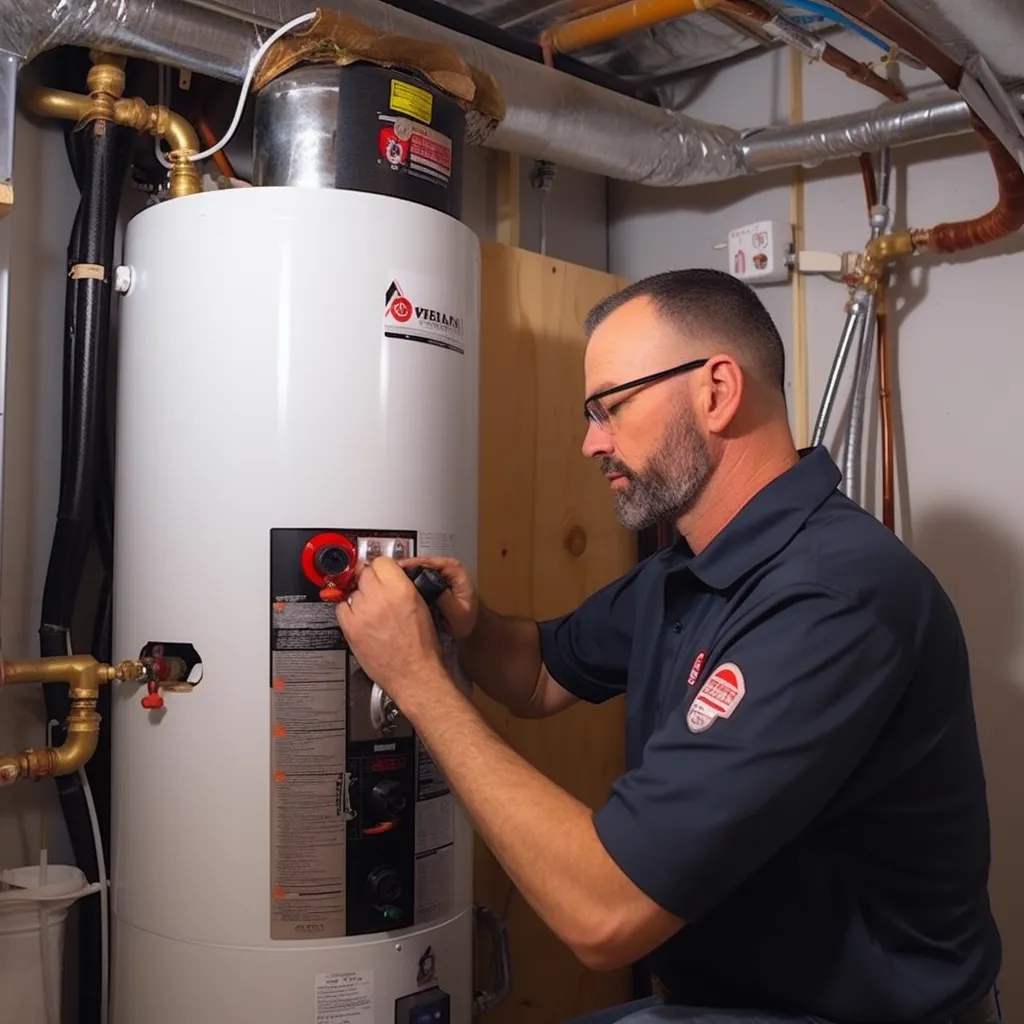
What are the differences in condensing vs non condensing tankless water heaters
Save money and energy with a tankless water heater, but make sure you choose the right one. There are two types: condensing and non-condensing. The key difference is how they deal with exhaust gases. Non-condensing models release them outside, but condensing models cool them down so they turn into water vapor. This makes condensing models way more efficient, even though they may cost more upfront. So, if you're looking to save money in the long run, choose a condensing tankless water heater.

What are the benefits
of a condensing tankless water heater?
When compared to non-condensing models, condensing tankless water heaters offer several benefits that are hard to overlookL
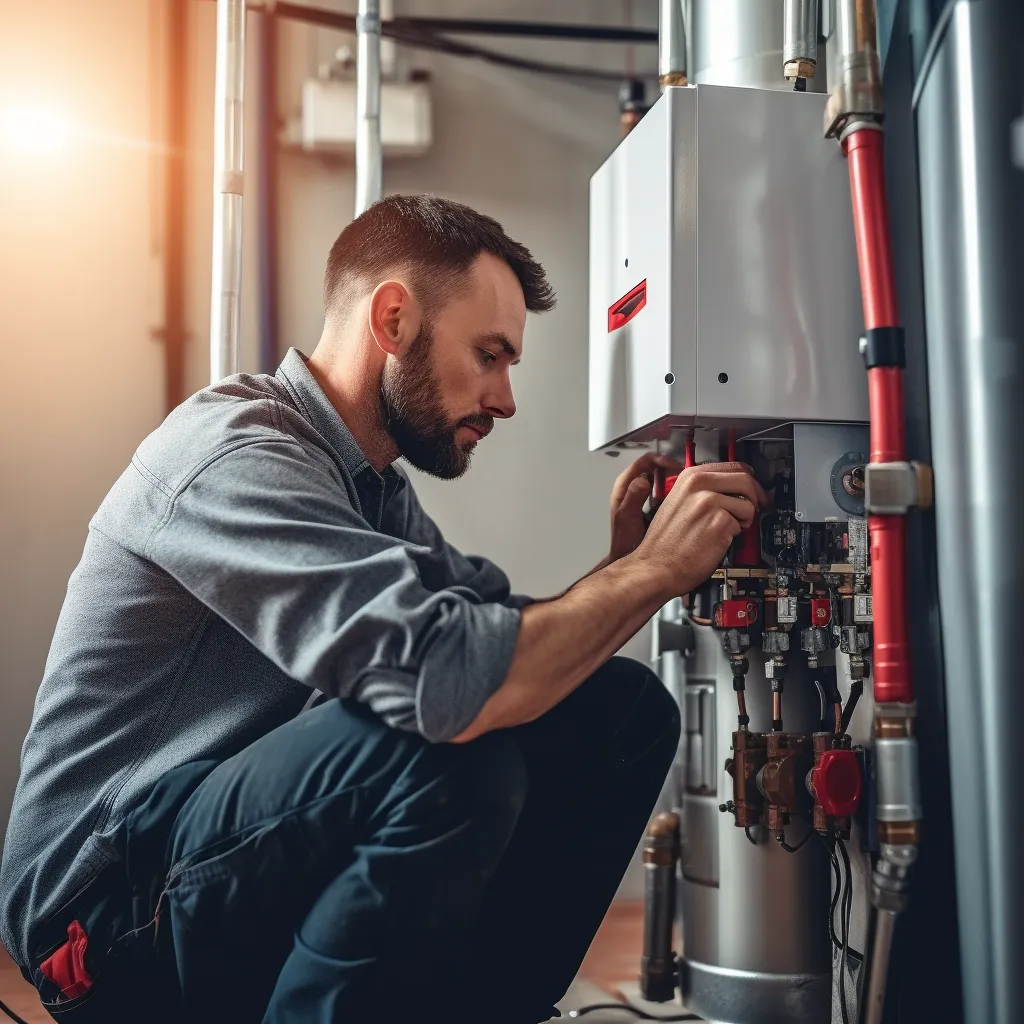
Save money on utility bills with their superior efficiency.
Reduce your carbon footprint with their fewer greenhouse gas emissions.
Their simplified design means they are built to last and provide a reliable supply of hot water for years to come.
What are the disadvantages
of a condensing tankless water heater?
If you're considering upgrading your water heater, you may be wondering if a tankless model is worth the extra money. Here's what you need to know:

Condensing models come with a higher price tag than non-condensing ones. However, the upfront cost is worth considering for the expected long-term savings. You'll save money on your monthly energy bills, and you won't have to replace your tank as frequently.
Keep in mind, though, that condensing models require more maintenance and installation complexity due to added venting and drainage systems.
Don't forget to include the cost of service calls when weighing your options.


Are condensing tankless water heaters energy-efficient?
Get smart and sustainable with a condensing tankless water heater! With a 96% efficiency rate, these heaters capture lost heat during the combustion process, saving energy and money. You don't even have to worry about heating extra water - they only kick in when you need hot water, reducing both expenses and your environmental footprint.
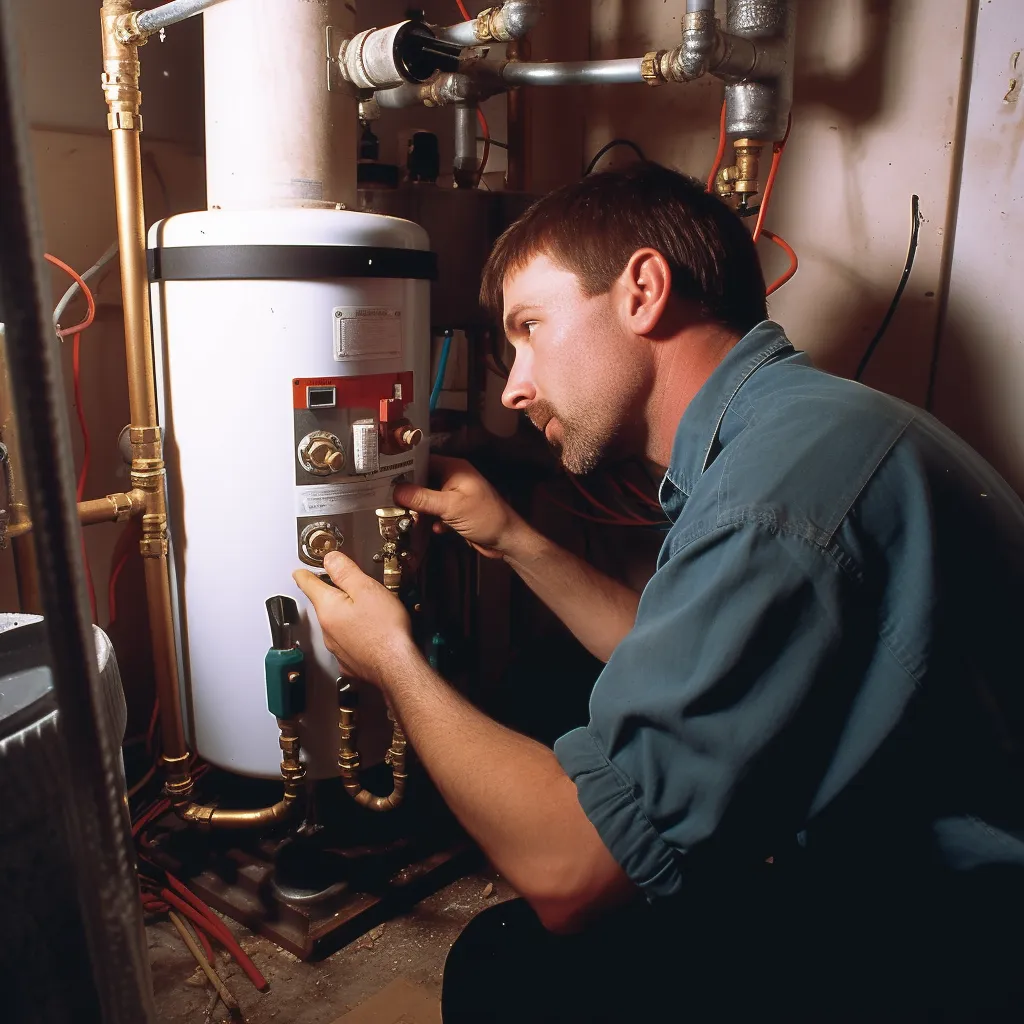
Are non condensing tankless water heaters energy-efficient?
Save money and reduce your energy usage with non-condensing tankless water heaters. They may not match the efficiency of condensing models, but they still provide a sustainable and cost-effective option. Consider exploring this solution if you're looking for a smart way to heat your water.

What is the cost to buy and install a condensing tankless water heater?
Upgrade to a condensing tankless water heater for unparalleled energy savings and efficiency that lasts for years. Though pricing varies based on factors like your home's size, model, and brand, the overall expense can be daunting. Additionally, installing the system can present its complexities. Consider consulting a trusted professional to help guide you towards the best option for your needs. Though the initial cost may seem steep, numerous homeowners attest to the long-term benefits being worth the investment.
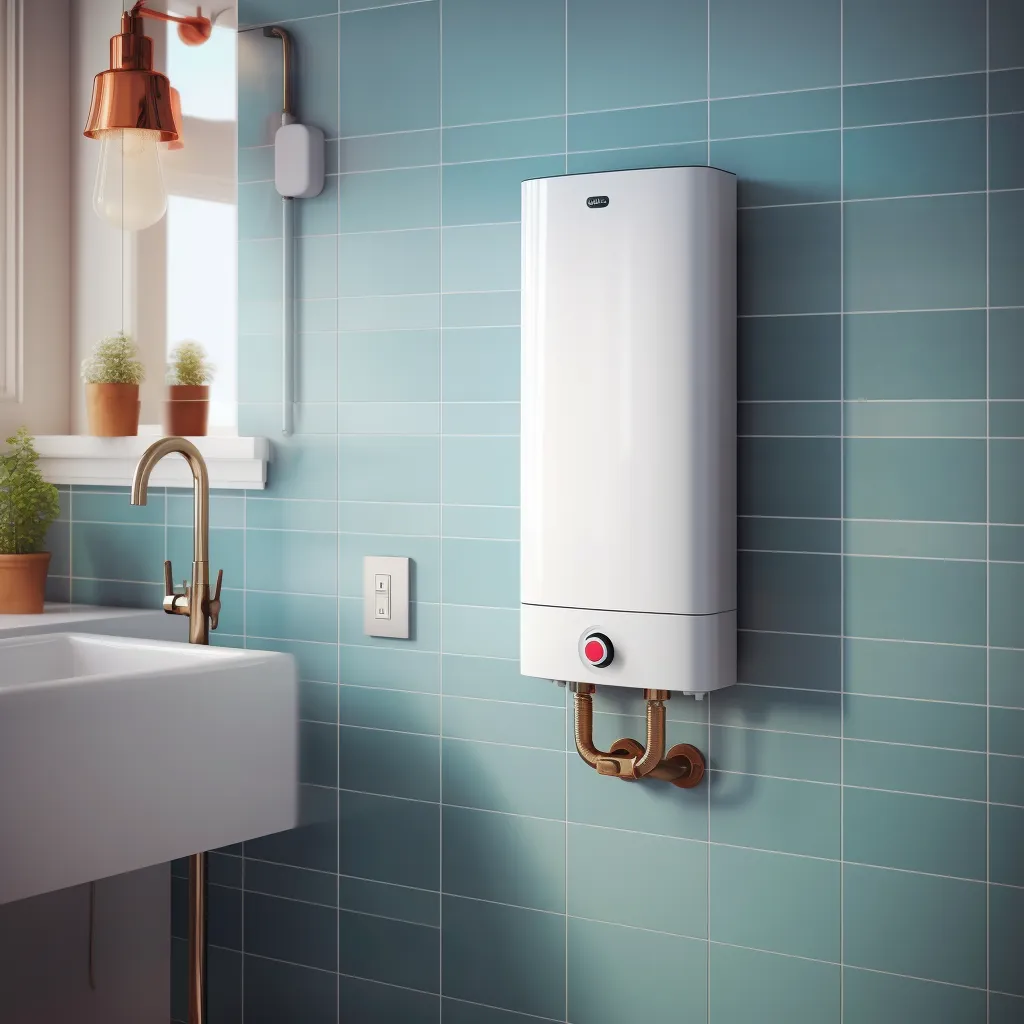
What is the cost to buy and install a non condensing tankless water heater?
Experience endless hot water with a long-lasting, reliable non-condensing tankless water heater. Choose from a variety of sizes and sleek designs to fit your home's needs. Though the initial investment may seem high, this equipment pays for itself over time and lasts up to two decades. Say goodbye to clutter with its flexible placement options. Find your perfect water heater today for $1,000 to $3,000.
What are the maintenance requirements
for condensing tankless water heaters?
To maintain the efficiency of your condensing tankless water heater, it's crucial to perform routine maintenance. Although these advanced devices provide maximum energy efficiency, proper maintenance is essential. Maximize your heating system's efficiency with these essential maintenance steps:

Detect and address leaks and other potential issues.
Clean the heat exchanger and burner.
Regularly inspect and replace filters to maintain optimal performance.
Test water pressure and temperature for peak functionality.
Keep the venting system clear of debris.
Flush the system regularly to prevent buildup.
Don't forget to check your air filter for cleanliness.
Keep your tankless water heater in top shape and save money on energy bills by scheduling regular maintenance checks with professionals. Avoid decreased efficiency and damage by being proactive and taking care of your water heater before issues arise. Don't wait until it's too late - prioritize regular maintenance today.

What are the maintenance requirements
for non condensing tankless water heaters?
Keep your non-condensing tankless water heater performing at its best with these maintenance tips:
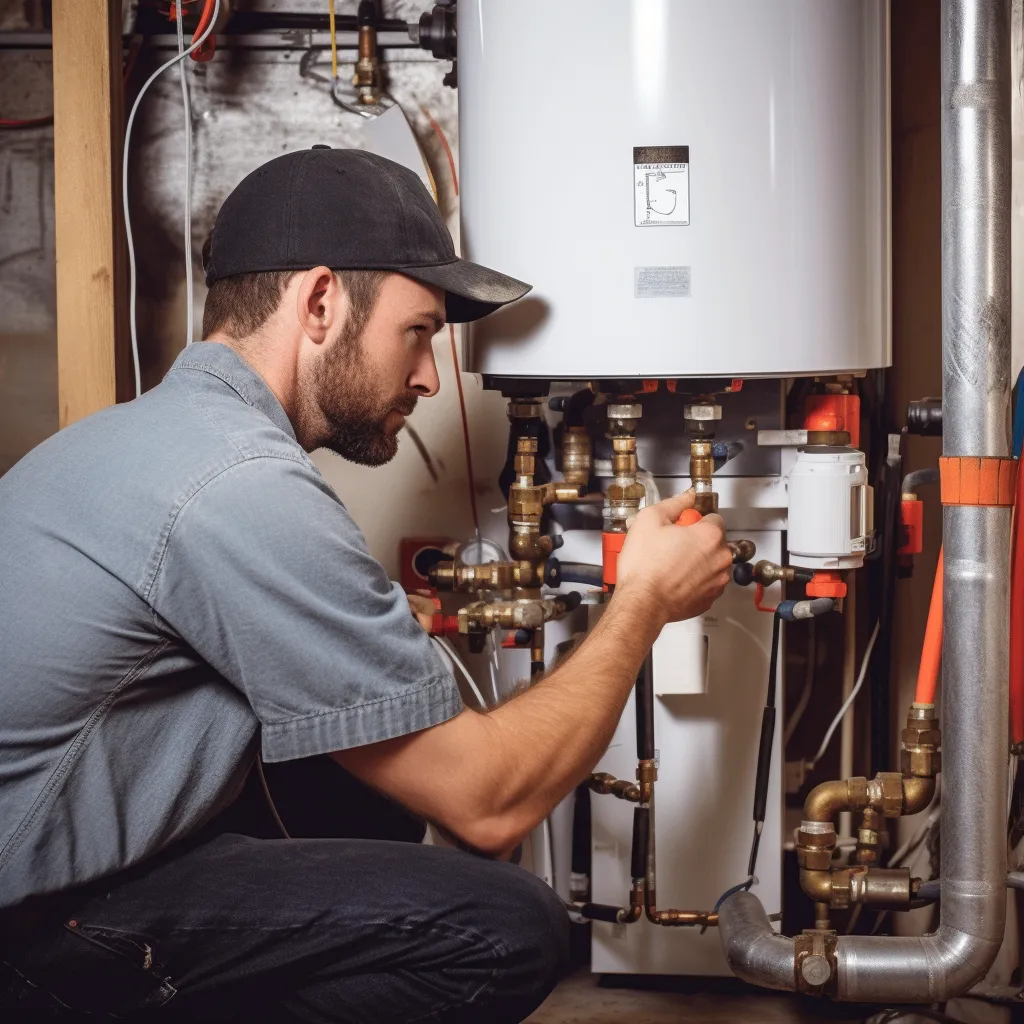
Flush the system regularly to eliminate mineral buildup and debris that can affect its performance.
Stay on top of filter changes to keep your unit running smoothly.
Clean the heat exchanger and burner regularly, and make sure to check for leaks and other issues.
Check the water pressure and temperature settings to keep your unit operating at optimal levels.
Keep the vents clear of debris for proper ventilation.
Factors to consider when choosing between a
non condensing vs condensing tankless water heater
Choosing between a non-condensing and condensing tankless water heater? Here are the key factors to consider:

Size matters, and if you're short on space, go for a condensing model that's typically more compact than its non-condensing counterpart.
Installation complexity also plays a role, and expect the condensing unit to require a more complicated setup which comes at an additional cost.
Maintenance is another factor to weigh, non-condensing models need more frequent servicing compared to condensing models.
When it comes to energy efficiency, condensing models outperform non-condensing ones, translating into lower utility bills in the long run.
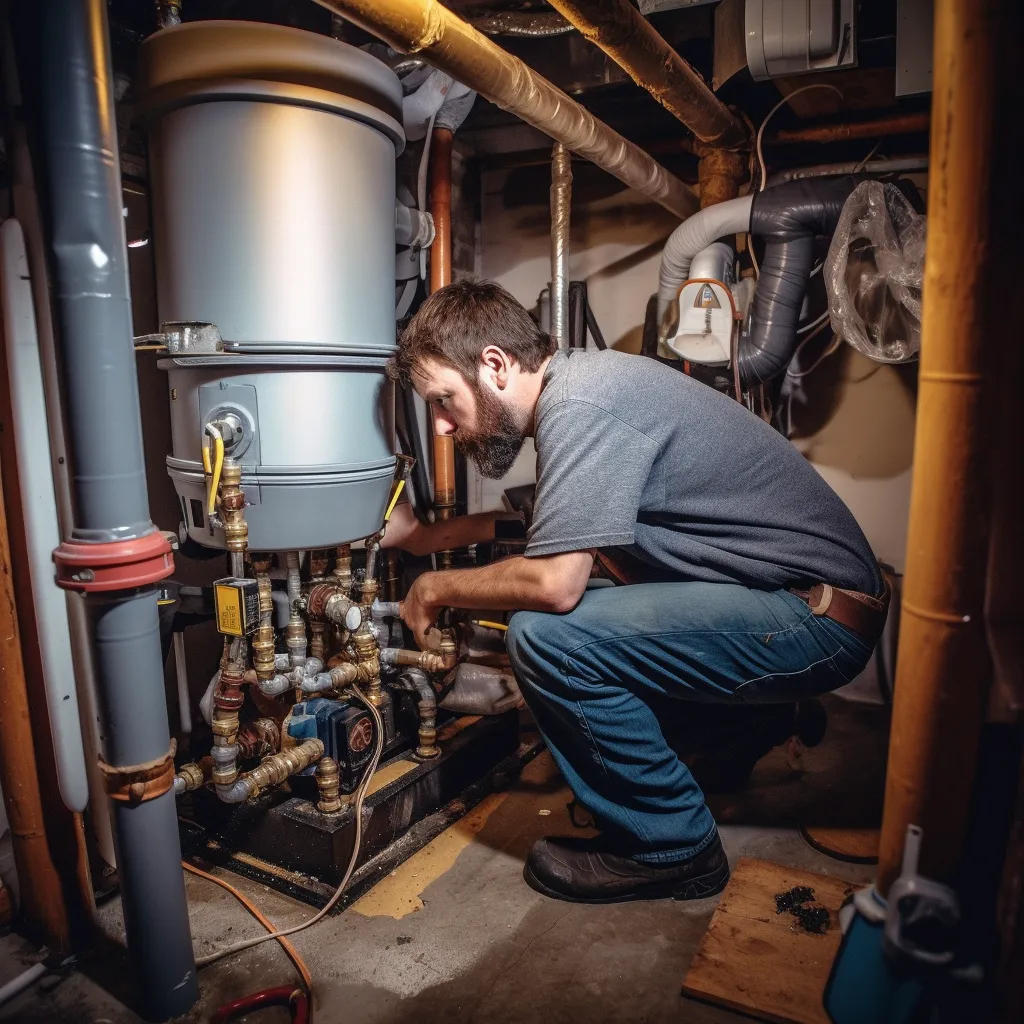
It's crucial to research
condensing vs non condensing tankless water heaters
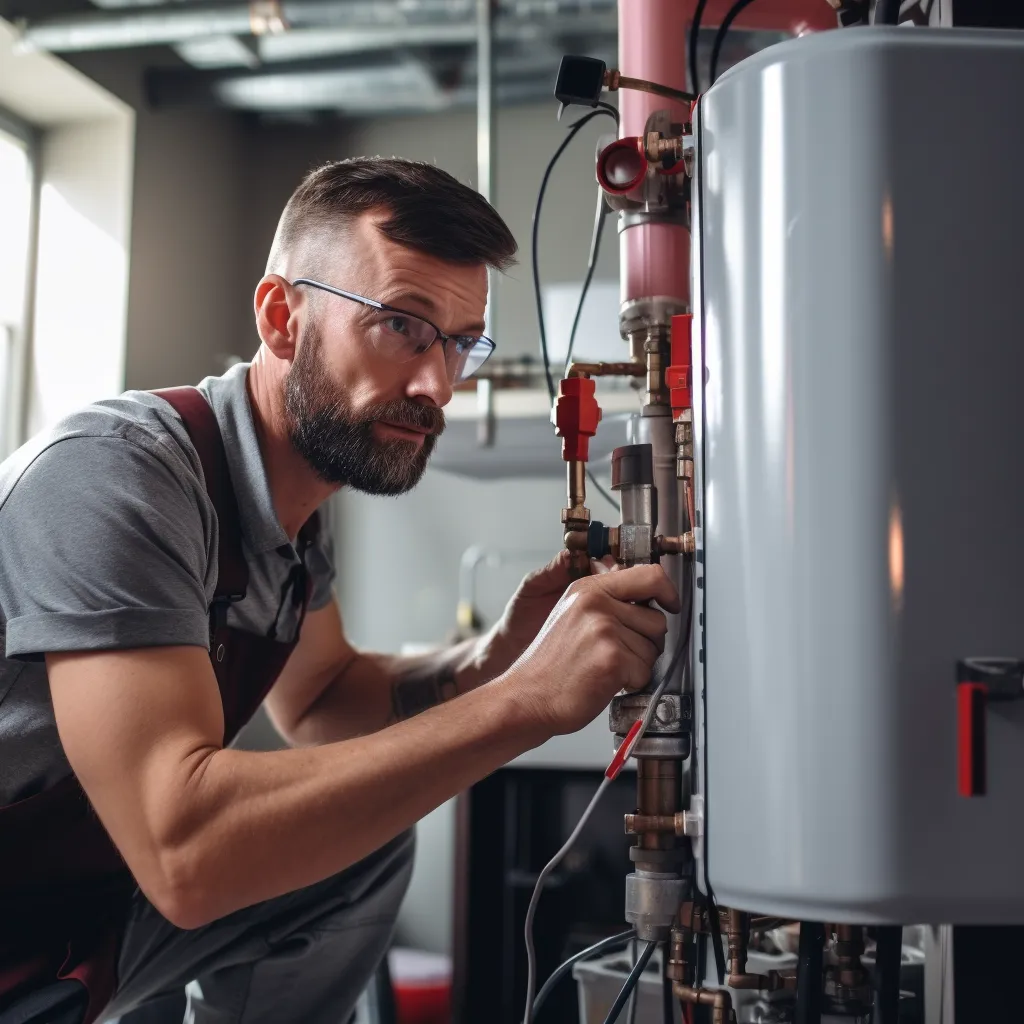
Finding the best tankless water heater for your home requires research to compare different types. One key factor to consider is whether to choose a condensing or non-condensing unit. Although non-condensing models may seem more budget-friendly, they waste energy and need more maintenance. In contrast, condensing tankless water heaters are more cost-effective and can lower your bills. By taking the time to compare options and picking the ideal water heater type, you can enjoy dependable hot water and energy efficiency.
However, selecting the right tankless water heater is a personal choice and requires the expertise of a licensed professional who understands your home's unique requirements. With professional guidance, you can make an educated decision that suits your home.
Contact Us
GET IN FULL TOUCH
PHONE: (510) 345-2489
EMAIL:
john@waterheaterberkeley.com
AquaSaver Water Heaters
Berkeley, CA 94702
